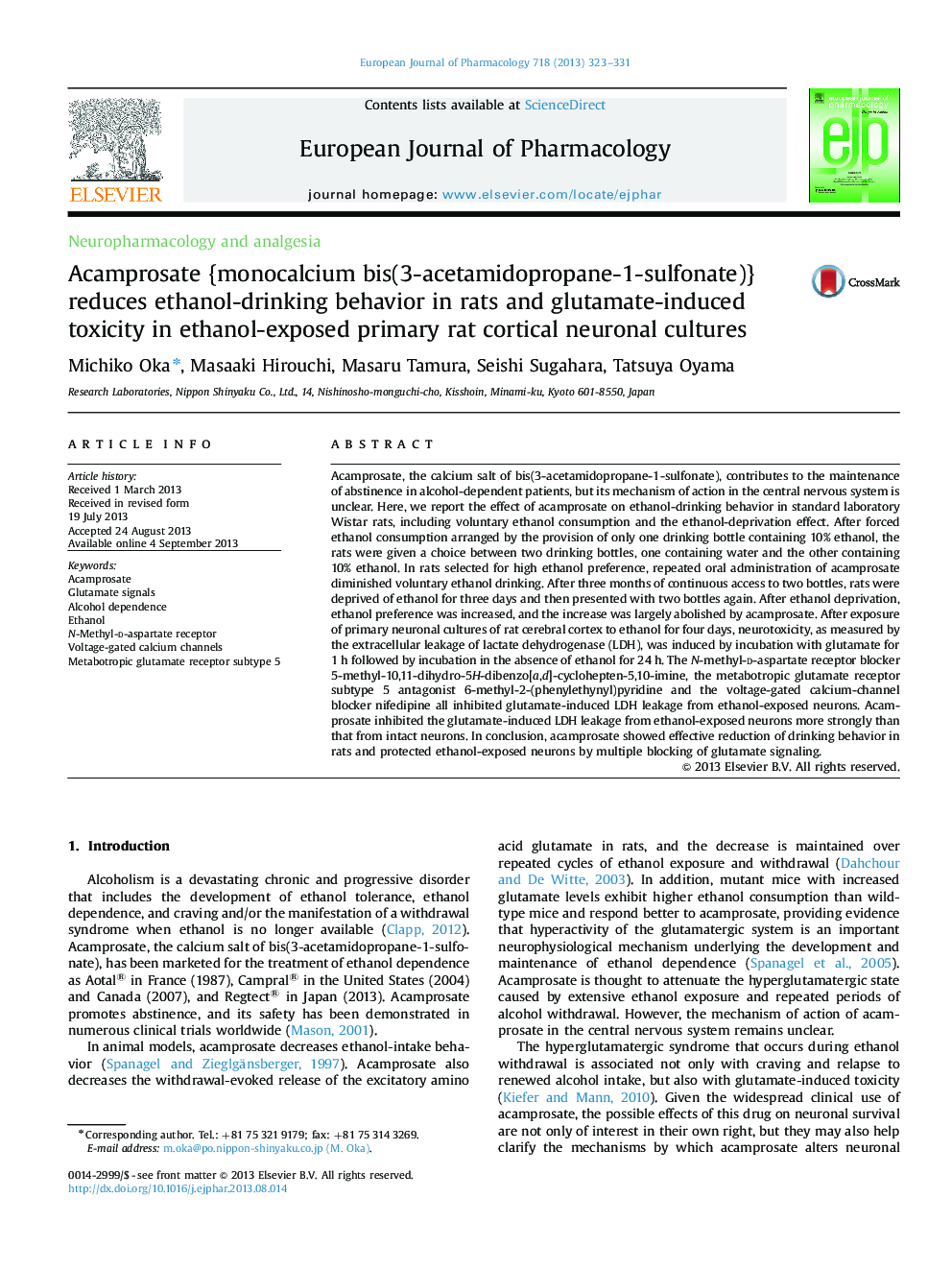| Article ID | Journal | Published Year | Pages | File Type |
|---|---|---|---|---|
| 5828368 | European Journal of Pharmacology | 2013 | 9 Pages |
Acamprosate, the calcium salt of bis(3-acetamidopropane-1-sulfonate), contributes to the maintenance of abstinence in alcohol-dependent patients, but its mechanism of action in the central nervous system is unclear. Here, we report the effect of acamprosate on ethanol-drinking behavior in standard laboratory Wistar rats, including voluntary ethanol consumption and the ethanol-deprivation effect. After forced ethanol consumption arranged by the provision of only one drinking bottle containing 10% ethanol, the rats were given a choice between two drinking bottles, one containing water and the other containing 10% ethanol. In rats selected for high ethanol preference, repeated oral administration of acamprosate diminished voluntary ethanol drinking. After three months of continuous access to two bottles, rats were deprived of ethanol for three days and then presented with two bottles again. After ethanol deprivation, ethanol preference was increased, and the increase was largely abolished by acamprosate. After exposure of primary neuronal cultures of rat cerebral cortex to ethanol for four days, neurotoxicity, as measured by the extracellular leakage of lactate dehydrogenase (LDH), was induced by incubation with glutamate for 1Â h followed by incubation in the absence of ethanol for 24Â h. The N-methyl-d-aspartate receptor blocker 5-methyl-10,11-dihydro-5H-dibenzo[a,d]-cyclohepten-5,10-imine, the metabotropic glutamate receptor subtype 5 antagonist 6-methyl-2-(phenylethynyl)pyridine and the voltage-gated calcium-channel blocker nifedipine all inhibited glutamate-induced LDH leakage from ethanol-exposed neurons. Acamprosate inhibited the glutamate-induced LDH leakage from ethanol-exposed neurons more strongly than that from intact neurons. In conclusion, acamprosate showed effective reduction of drinking behavior in rats and protected ethanol-exposed neurons by multiple blocking of glutamate signaling.
